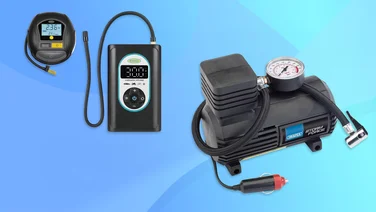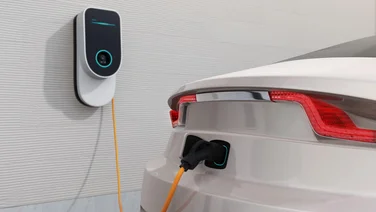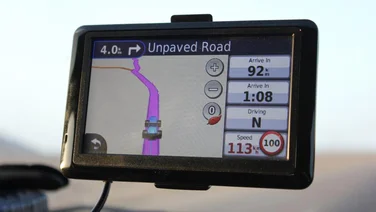To help us provide you with free impartial advice, we may earn a commission if you buy through links on our site. Learn more
- Get a free home EV charger quote today
- Best home EV charger UK: At a glance
- How to choose the best home EV charger for you
- The best home EV chargers you can buy in 2024
- 1. Pod Point Solo 3: The best home charger for public network integration
- 2. Andersen A2: The best home charger for style
- 3. EO Mini Pro 3: The best home charger for discretion
- 4. Ohme Home Pro: The best home charger for controlling without a phone
- 5. Myenergi Zappi 2.0: The best home charger for solar integration
- 6. Wallbox Pulsar Max: Best charger for colour coordinating
- 7. Evec VEC01: Best value home charger

With so many options on the market, picking the best home EV charger can be a daunting task. If you own an electric vehicle, however, a wallbox charger is an essential purchase, as you can make big savings over using public charging points – especially seeing as the price of public charging has rocketed recently. Plus, a home wallbox charger could potentially increase the value of your home.
Whether you’re planning to go electric or already own an EV, a home wallbox charger will ensure that you get the absolute lowest running costs for any electric vehicle. They will charge your car more quickly and more safely than a standard mains socket, and in some cases, buying a home wallbox will also give you access to a UK-wide network of public charging points.
In this article, we’ll help you make a more informed choice about which EV charge point is right for your lifestyle and property, whether that’s something that’s basic but affordable, super stylish or packing tech that enables it to be controlled and monitored via a smartphone.
Read on, and our buying guide and bite-sized reviews will explain all the key differences between the best home EV chargers you can buy today.
Get a free home EV charger quote today
If you’d like a quote for an electric car charging point, then use our free price comparison tool to hear directly from suppliers near you.
Best home EV charger UK: At a glance
| Best for public network integration | Pod Point Solo 3 | |
| Most stylish home EV charger | Andersen A2 | |
| Best home charger for discretion | EO Mini Pro 3 | |
| Best for controlling without a phone | Ohme Home Pro | |
| Best for solar integration | Myenergi Zappi 2.0 |
How to choose the best home EV charger for you
What should I look out for in a home EV charger?
Most home chargers deliver the charging capacity of 3kW or 7kW. Some 22kW chargers can be installed, delivering a charge of around 40 miles in roughly an hour. Note that they require a three-phase supply, rather than the single-phase most UK residential homes are built with, and not all vehicles will accept that power delivery from a home supply.
Also bear in mind that slower charging protects the batteries from premature deterioration.
READ NEXT: Best EV tariff
Are my home electrics affected by EV charge point installation?
Charge points are sold as “tethered” or “untethered”, also known as “socketed”. Tethered, like the pump at a fuel station, means the charging cable is supplied with the box. Tethered points mean you don’t have to fish the car’s charging cable out of the boot, which isn’t fun in the pouring rain. Most charge point providers support a broad range of car makers. Not all EVs have the same charge port, however, so socketed devices have a more universal appeal. That said, there are adapters available if your car doesn’t match with a pre-existing charge point.
Built-in fuse protection guards your home circuits from shorting by isolating the car from the rest of the supply. Meanwhile, new grounding technology means physical earth rods are no longer as much of a consideration, but could be an additional cost, depending on the charge point provider.
READ NEXT: How to install an EV charger at home
How much do I need to spend?
Prices for electric charge points vary from £400 to £1,500. Some providers include installation, safety technology and a warranty. The British government runs various schemes designed to incentivise EV home charge point installation with discounts: the latest of these is the EV chargepoint grant, which offers funding of up to 75% towards the cost of home EV charger installation. The caveat is that this scheme is only applicable to people who own and live in flats and tenants/landlords of rental properties. You can find out more at the Grant schemes for electric vehicles gov.uk page.
Unfortunately, the Electric Vehicle Homecharging Scheme (EVHS), which encompassed all property owners, expired on 31 March 2022. However, Scottish householders continue to have access to the Scottish Energy Saving Trust grant of up to £300.
READ NEXT: How much does it cost to install a home EV charger?
Anything else to consider?
Most chargers will allow you to schedule a charge, either directly using the touchscreen or remotely through a companion app. For maximum savings, schedule charging when your energy provider’s off-peak tariff applies and give people access when you’re not home.A charge point with Smart Control enables your energy provider access to manage your car charge while simultaneously managing grid demand, so as to minimise network disruption and keep your costs low.
If you have solar panels, or you intend to invest in them, and you want the device to draw on solar-powered energy instead of the National Grid, ensure you pick a device with that capability.
What about monetising my home charger?
Charging communities such as Co Charger and JustCharge provide platforms so you can rent your charge point out, Airbnb style, to other EV drivers and monetise your new asset. Most EV drivers only need to charge overnight once a week, so home charge points tend to sit unused most of the time.
Bi-directional charging technology also enables you to make money from your home charge point. The idea is that you draw down energy from the National Grid to store in the car battery when energy is cheap, then sell it back to the grid when demand peaks. If you use this technology in tandem with solar panels, you could see significant accumulated savings on your energy bills.
The best home EV chargers you can buy in 2024
1. Pod Point Solo 3: The best home charger for public network integration

Price when reviewed: From £799 inc. installation | More information at Pod Point
Pod Point is one of the longest-established commercial charge point providers, and it introduced its newest home charger to the market at the end of 2021. The Solo 3 is an inoffensive black and grey device offering both tethered and untethered configuration. There’s fuse protection, which automatically balances the power load to ensure your home doesn’t blow during a surge.
It connects to your home Wi-Fi and automatic updates ensure your charger can improve when there are new features and functionality available, without needing to buy a new one. The Pod Point app is also simple to use. Not only does it record your home charging, but it also conveniently gives you access to the whole Pod Point network of over 6,000 public charge points. You can also download charging reports to review budgeting.
Key specs – Size: 33 x 29 x (up to) 16.7cm (WDH); Power delivery: 3.6kW, 7kW, 22kW
2. Andersen A2: The best home charger for style

Price when reviewed: From £1,499 inc. installation | More information at Andersen
The highly connected Andersen A2 is all about style. Sporting a Scandi-style minimalist design but made in the UK, the unit is designed to hide the cables away and can be customised in a number of different colours to coordinate with your home decor.
With no need for earth rods, this smart-controlled EV charge point is more intelligent than most, with the Konnect+ app and free over-the-air (OTA) updates (just like your mobile phone) to keep your charge point up to date and in tip-top condition.
Supporting all vehicles with a Type 2 port (which is pretty common in most vehicles in the UK), the A2 offers a 3kW and 7kW power delivery, and a 22kW option for householders with three-phase supply to their home. The A2 also integrates with solar panels and offers remote charging, making it a perfect, albeit pricey, all-rounder.
Key specs – Size: 34.8 x 15.6 x 49.4cm (WDH); Power delivery: 3.6kW, 7kW or 22kW
3. EO Mini Pro 3: The best home charger for discretion

Price when reviewed: £966 inc. installation | More information at EO Charging
The third generation EO Mini Pro now offers Wi-Fi, Bluetooth and Ethernet connectivity as standard, with 4G cellular connectivity as an optional (£257) extra to ensure it’s constantly connected, even in those areas Wi-Fi and Ethernet cables can’t reach.
This minimalistic unit is still just as compact, though it has grown a little over the years, requiring a trained eye to be able to spot that you even have a charger installed. The new version also features more rounded edges and generally more agreeable styling. It features a maximum capacity of 7.2kW for single-phase charging and now up to 22kW for three-phase charging. The EO Mini Pro 3 can also be either socketed or tethered (for an extra £30).
We’ve been especially impressed with the build quality of previous versions and the neat way installation requires only a single cable pinned to the wall. For added convenience, it also uses the EO Smart Home app to help drivers manage charging sessions and boasts a bonus locking feature for security.
Though the app can occasionally be glitchy, the Mini Pro is compatible with a broad range of manufacturers. Its price also makes it a popular choice.
Key specs – Size: 23cm x 15cm x 12.5cm (WDH); Power delivery: 3.6kW, 7kW, 22kW
4. Ohme Home Pro: The best home charger for controlling without a phone

Price when reviewed: From £561, exc. earthing tech and installation | More information at Voltaev
The Ohme Home Pro has something no other charging device on this list has: a digital display. Appealing to anyone who has endured the frustration of waiting for a smartphone app to connect, the display offers easy-to-read, at-a-glance information, connecting to the internet via an integrated 4G SIM card, and updating over the air rather than via your home network.
Sadly, there’s no solar charging integration or colour choice. What’s more, the Ohme Home Pro is only offered on a tethered basis, and the open cabling means it looks a bit messy. While the Ohme Home requires an additional charge for a Garo earthing device, the Home Pro gets built-in grounding technology. The Ohme Home Pro isn’t as versatile as others, but its price (alongside that screen) makes it a worthy contender for those car brands that are supported.
Key specs – Size: 17 x 20 x 10cm (WDH); Power delivery: 7.4kW
5. Myenergi Zappi 2.0: The best home charger for solar integration

Price when reviewed: From £1,230 inc. installation | More information at McNally
The Myenergi Zappi 2.0 is one of the best-selling EV charge points on the market, and it’s easy to understand why. Available tethered or untethered, the unit comes in a choice of stylish black or white colours. The Zappi 2.0 has a built-in earth rod and fuse protection but its popularity lies in the smart way it integrates with solar panels.
The Zappi’s Eco modes mean the charger draws energy from your solar device, instead of energy from the Grid—provided the house isn’t using that energy, of course. The sophisticated software has been designed to enable customers to prioritise whether excess solar energy storage should go to the car, a battery or, should you have one, a hot water tank. Upgrades from the first iteration of the Zappi now enable customers to benefit from off-peak, or ‘agile’ tariffs, both of which help keep energy bills as low as possible.
Key specs – Size: 29.2 x 12.2 x 43.9cm (WDH); Power delivery: 7.4kW
6. Wallbox Pulsar Max: Best charger for colour coordinating

Price when reviewed: From £599 exc. installation | More information at Chargepoint EV
Another home charger to stick in the “discrete” category, this diminutive Pulsar Max from Wallbox belies its size with an exceptional number of features.
The Wallbox Pulsar Max has an interactive halo light, which can be set to only turn on when you interact with the unit or remain ultra-bright all the time, which is 100% customisable. What’s more, no earthing rod is required thanks to integrated PEN fault protection, while the new IK10 weather rating means it can happily be used indoors or out.
Connectivity is taken care of by both Bluetooth and Wi-Fi, with an accompanying smartphone app that makes it easy to schedule a charge plus there’s even an option to take charge directly from solar panels installed on your house to keep costs down further. If jabbing away at phone screens isn’t your thing, the Pulsar Max can also be controlled with Amazon Alexa and Google Assistant devices.
Key specs – Size: 20cm x 20cm x 10 cm (WDH); Power delivery: 7kW, 22kW
7. Evec VEC01: Best value home charger

Price when reviewed: £400 | More information at Amazon
There’s not much Amazon doesn’t sell these days and the list now includes high-tech home wall chargers for today’s EVs. The Evec VEC01 is a solid option for those on a tight budget, offering slick design, a simple interface and additional features at a very reasonable price.
The unit offers power outputs between 3.7kW and 7.4kW, supporting both Type 1 and Type 2 connectors for both battery-powered EVs and hybrids, while the free Evec app (iOS and Android) allows users to remotely monitor charging status, schedule charging sessions and track usage, so long as the VEC01 is in range of Wi-Fi.
Safety-conscious commuters can breathe a sigh of relief too as the VEC01 is also compliant with both CE and UKCA safety standards and comes with a three-year manufacturer’s warranty. Don’t forget that a professional installation by a qualified electrician and EV charger installer is still advised to ensure everything is functioning properly.
Key specs – Size: 12.6 x 19 x 30cm (WDH); Power delivery: 3.7kW, 7.4kW







